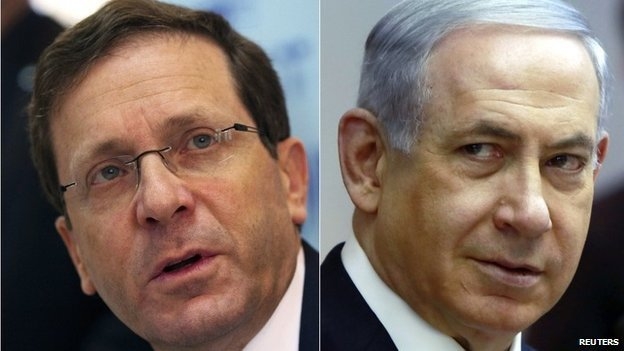
Polls have opened in Israel in what is expected to be a close contest between Prime Minister Benjamin Netanyahu’s party and a centre-left alliance.
The centre-left Zionist Union has promised to repair relations with the Palestinians as well as the international community.
Mr Netanyahu has vowed not to allow the creation of a Palestinian state if he wins a fourth term.
Neither side is expected to get more than a quarter of the votes.
Polls opened at 07:00 (05:00 GMT) and are due to close at 22:00.
While results could be declared soon after the close of polls, a definitive conclusion appears likely to take some time.
A lengthy period of negotiations over the formation of the next coalition government could follow.
Opinion polls published before the weekend suggest that the centre-left Zionist Union is likely to win the most seats.
However, the BBC’s Kevin Connolly in Jerusalem says that it might still be possible for Mr Netanyahu to form a coalition government even if his Likud party fails to top the poll.
No party has ever won an outright majority in Israel’s election, meaning it has always been governed by a coalition.
Much of the focus of the campaign has been on international issues, from Israel’s relationship with the United States to concerns over Iran’s nuclear programme.
Israelis attend a right-wing rally in Tel Aviv”s Rabin Square March 15, 2015.
Right-wing supporters have been rallying but it is the centre-left expected to win most seats
People bring posters of Israeli Prime Minister Benjamin Netanyahu prior to his election rally in Tel Aviv, Israel
Analysts have described the election as a vote on the record of Prime Minister Netanyahu
But many of the candidates have concentrated on socio-economic problems in Israel, including the high cost of living and slow economic growth.
The future of the city of Jerusalem has been a central election issue.
Mr Netanyahu has consistently accused his centre-left challengers of being willing to relinquish Israel’s claim to Jerusalem as its indivisible capital in peace talks with the Palestinians.
On Monday, Mr Netanyahu spoke at the Har Homa Jewish settlement in East Jerusalem and said he was the only person who could ensure the city’s security.
He said no Palestinian state would be formed were he to remain prime minister.
Palestinians seek East Jerusalem – occupied by Israel since the 1967 Middle East war – as the capital of a future Palestinian state.
But Zionist Union party co-leader Yitzhak Herzog has accused Mr Netanyahu of “panicking”.
Visiting the Western Wall, one of the holiest sites in Judaism, on Sunday, he pledged to “safeguard Jerusalem and its residents in actions, not just words, more than any other leader”.
Source: BBC


